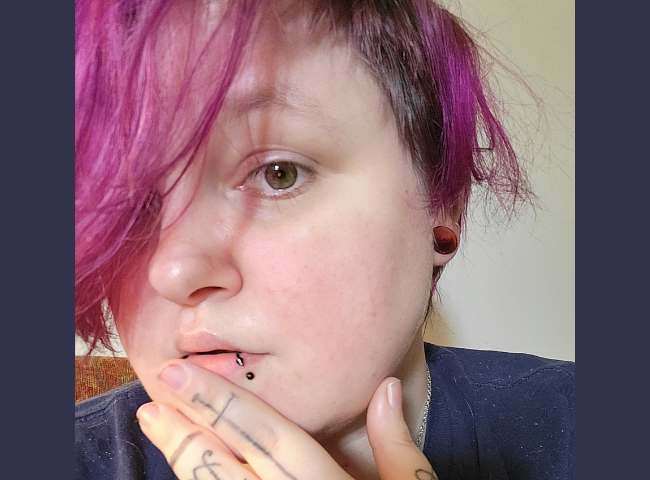Meet Jaden

Jaden's story
HRT Access Fund recipient
Jaden (he/him) is a 30-year-old trans male who has been struggling with his identity since he was 13 years old. As he got older, his gender dysphoria only became worse. At age 19, he experienced uterine pain and has been begging to get it removed due to medical necessity. However, the laws in North Carolina have stopped him. He also struggles with the ability to access HRT.
Jaden is a tattoo artist and covers scars of all kinds. Through his art, he draws insecurities to show people just how beautiful they can be. He is one big goofball with the biggest heart who always puts everyone else first.
Receiving HRT would help directly with the financial issues. Jaden was recently diagnosed with cervical cancer and with those bills along with trying to support himself and his son, receiving HRT would greatly help his quality of living.
Jaden's timeline
-
Award Granted
August 12, 2024
Jaden was awarded a grant toward HRT/GaHT!
-
HRT Onboarding Date
September 18, 2024
Jaden was seen by their HRT/GaHT provider.
About Testosterone+
On average, it costs $1,200+/year for Jaden's care.
- What is it?
- Accessibility
- After care
What is it?
Testosterone+ refers to the gender-affirming hormone replacement therapy (HRT) methods that some trans men, trans masc, and non-binary people take that result in physical changes which align with their gender identity. Every person's preferences and personal healthcare needs vary, so this can include oral medications, injections, and transdermal patches.
How accessible is it for trans folks to receive this care?
For trans folks who live in states most impacted by anti-trans healthcare legislation, it can be extremely difficult to find a knowledgeable, trans-affirming provider as well as access prescription medication. Many insurance plans do not cover HRT. For trans folks without insurance coverage, the ongoing out-of-pocket expense can be challenging.
What is the impact of this care on the recipient’s life?
Testosterone+ introduces a wide range of masculinizing physical, emotional, and psychological changes that align with their gender identity. This often leads to a more positive emotional well-being, increased confidence, increased safety when in public, and better opportunities at employment and more.
Your support funds healthcare that's
life-changing. Life-saving. Life-giving.